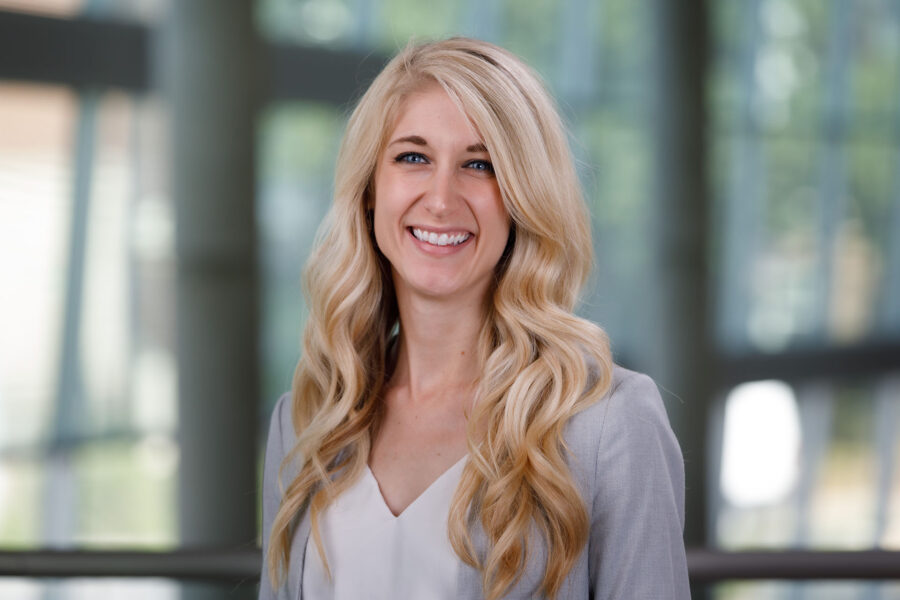UNMC researchers are studying a disease called inducible laryngeal obstruction, previously known as vocal cord dysfunction, in hopes that they will find better ways to diagnose and treat it.
“I see a lot of patients with ILO,” said Jen Luedders, MD, assistant professor in the UNMC Division of Allergy and Immunology. “It’s a disorder of the throat where either the structures in your vocal cords or the tissues right above your vocal cords move inappropriately, and you will get closure of those tissues or the vocal cords when you shouldn’t.”
Dr. Luedders said the symptoms of ILO can mimic allergic reactions and include rapid onset of throat tightness, shortness of breath, cough, sensation of choking and hoarseness.
“A lot of patients come in thinking they’re having allergic reactions when they smell certain things or when they’re exposed to certain things or even when they eat certain foods,” Dr. Luedders said. “Then, when we really look, they don’t actually have allergies, and instead it’s this inappropriate functioning in the throat.”
There also is a subset of patients who may have chronic cough as a feature of the disease.
The pilot study, led by Dr. Luedders and allergy fellow Sunghyub (Daniel) Kim, DO, recently received IRB approval. It will look at the levels of 12 neuropeptides in 15 subjects with ILO and chronic cough and compare them to 15 healthy control patients.
There currently is no biomarker or lab tests or easy way to diagnose ILO. Dr. Luedders said patients are able to get a definitive diagnosis only by scoping the throat.
“I’ve had some patients with symptoms so severe they’re afraid to leave their house because they’re worried they’ll encounter their trigger,” she said. “When we can get them the actual diagnosis, they get their lives back.”
Dr. Luedders describes this as a very early study to gather information that could be used to help with either diagnostics or therapeutics for the disease.
The samples will be collected through nasal washes, and Dr. Luedders said they are using a device called MicroWash, which was developed at UNMC by Michael Wadman, MD, professor and chair, and Thanh Nguyen, PhD, assistant professor, both of the UNMC Department of Emergency Medicine.
This pilot study will be conducted at UNMC, and researchers also are recruiting healthy control patients to provide nasal wash samples.
